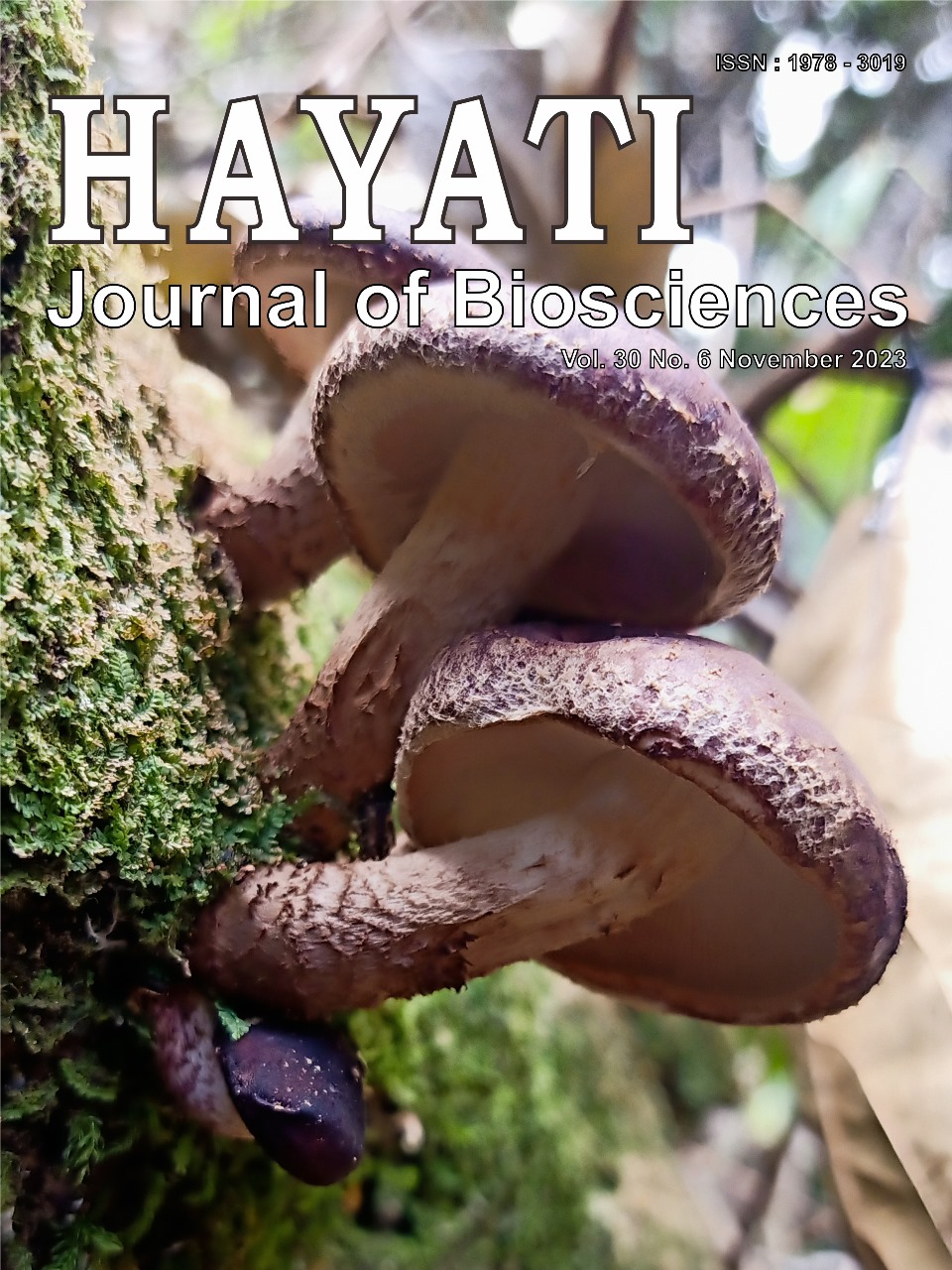α-Mangostin Effectively Inhibits Chikungunya Virus Replication in HepG2 Cells
DOI:
https://doi.org/10.4308/hjb.30.6.1187-1193Abstract
Chikungunya virus (CHIKV) is an arthropod-transmitted Alphavirus endemic to countries in Africa and Asia, including Indonesia, which causes debilitating arthralgia which can last several years. The rapid spread of CHIKV to new areas makes the discovery of antiviral agents a high priority. α-mangostin is a xanthone from mangosteen (Garcinia mangostana) pericarp and has antiviral activity against Hepatitis C and Dengue viruses. We investigated the antiviral activity of α-mangostin against CHIKV in HepG2 cells in pre-, post- and combination treatments compared to the common antiviral medicine ribavirin, as well their cytotoxicity. Our results show dose-responsive reductions in viral titer in all treatment regimes, with post- and combination treatments being more effective than pre-treatment only (IC50 = 7.79, 5.99 and 6.39 µM, respectively), but with poor specificity (SI = 1.39, 1.81 and 1.70, respectively) compared to ribavirin. Neither compound showed a direct virucidal effect. These results suggest α-mangostin effectively inhibits CHIKV replication in this cell line.
Downloads
Downloads
Published
Issue
Section
License
HAYATI J Biosci is an open access journal and the article's license is CC-BY-NC. This license lets others distribute, remix, tweak, and build upon author's work, as long as they credit the original creation. Authors retain copyright and grant the journal/publisher non exclusive publishing rights with the work simultaneously licensed under a https://creativecommons.org/






















.png) Bogor Agricultural University
Bogor Agricultural University Department of Biology
Department of Biology The Indonesian Biological Society
The Indonesian Biological Society 

